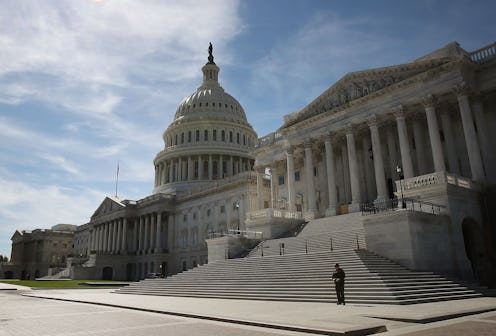News
GOP Likely to Keep Control of House
While all 435 U.S. congressmen in the House of Representatives must be reelected every two years, most incumbents enjoy a strong advantage in procuring reelection. As a result, it seems clear that the House of Representatives will remain in GOP control next year, though the Democrats are likely to make some significant gains.
The International Business Times reported that 52 of these races are considered competitive. To secure a majority — and to oust Paul Ryan as Speaker of the House — Democrats would have to win 71 percent of those seats, including several races that currently appear to lean Republican. Why are so few House seats competitive? Besides the inherent advantage that comes with being an incumbent, the 2010 midterms swept a large wave of Republicans into Congress, which allowed the GOP to redraw four times as many districts as the Democrats, according to FiveThirtyEight.
Of course, at least residents of the 50 states of America are able to elect a representative: residents of Washington, D.C. and U.S. territories like the U.S. Virgin Islands are only able to elect a nonvoting representative.
Despite its relative security in numbers, Republicans are fighting to retain as many seats as they can. After the release of a hot mic tape that showed Republican presidential candidate making lewd comments about women, Speaker Ryan encouraged down-ballot candidates to focus on their own elections rather than the presidential one; many GOP congressional candidates have since abandoned Trump, like Rep. Martha Roby of Alabama.
However, the Trump factor may yet be damaging to precarious incumbents. First-term Virginia representative Barbara Comstock has been the subject of a number of attack ads by Democratic challenger LuAnn Bennett, who was eager to tie Comstock to the controversial nominee. Another Republican candidate reportedly struggling to escape associations with Trump is, according to the New York Times, Carlos Curbelo of Florida. The New York Times noted that Democrats seem confident in their ability to wrest Curbelo's seat and have spent over $2 million on an ad campaign in the area.
Will Comstock and Curbelo be able to escape association with their party's often-unpopular nominee and retain their seats? Frankly, it's hard to predict. The Cook Political Report rates 18 House races, including Comstock's and Curbelo's, as true "toss-ups." (The other competitive races received ratings of "likely Democrat," "leaning Democrat," "leaning Republican," or "likely Republican.")
The majority of the other "toss-up" races are, somewhat surprisingly, in states like New Jersey, California, and New York, which have almost always gone Democrat in recent presidential elections, meaning that even the traditionally "blue" states are worth watching when poll results flow in next week.
